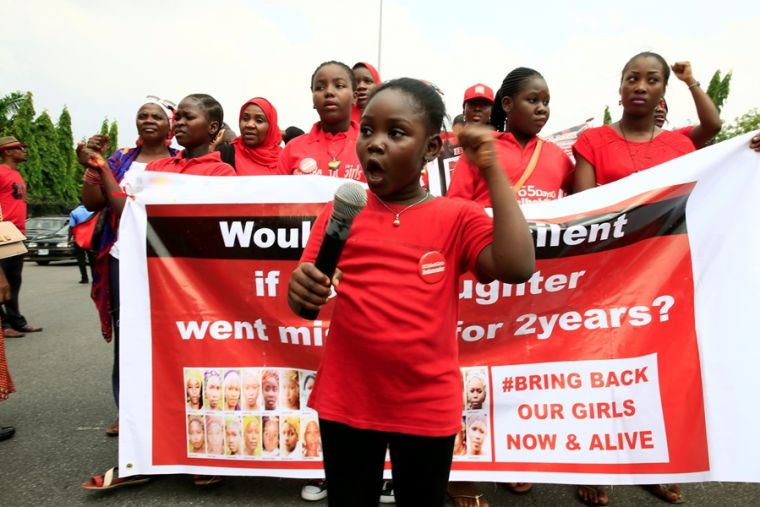'Proof of life' video of abducted Nigerian girls renews global outrage over 2014 Boko Haram atrocity, CNN says

The Cable News Network (CNN) has announced that it has exclusively obtained a "proof of life" video of the more than 200 girls kidnapped in Chibok, Nigeria by the Islamic militant group Boko Haram in 2014.
CNN says the video produced by the girls' captors has prompted renewed outrage over the kidnappings that broke hearts of people worldwide, even as it underscored the anguish of the girls' families and the horrors that the girls must be facing.
The kidnapping of 276 Chibok girls from their school dormitory sparked global anger—anger directed not only at the Boko Haram terrorists but also at the government authorities who are supposed to deal with this problem, CNN reports.
The U.S. cable TV company asks: How was it that two years after the mass kidnapping, the Nigerian government and the global community at large had failed to rescue the 219 still missing?
"And why had the Nigerian government—believed to have been in possession of the video since mid-January—failed to inform the families of the missing girls it had the film, the first glimmer of hope their daughters were still alive?"
The video obtained by CNN showed 15 girls in robes identifying themselves. It was believed to have been recorded on Christmas Day, Dec. 25, 2015 during the negotiations between the government and alleged Boko Haram representatives.
CNN says it got the video from "someone keen to give the girls' parents hope that some of their daughters are still alive, and to motivate the government to help release them."
Two of the three mothers to whom CNN showed the footage were able to recognise their daughters, while a third cried after failing to see her daughter. A classmate of the missing girls also identified several of the teens in the video.
The Nigerian government told CNN that it also has a copy of the "proof of life" video, and that it is in negotiations with the people who provided it to try and secure the girls' release.
"There are ongoing talks. We cannot ignore offers, we cannot ignore leads, but of course many of these investigations cannot be disclosed openly because they could also endanger the negotiations," said Lai Mohammed, Nigeria's minister of information.
However, Mohammed said he could neither confirm nor reject the authenticity of the footage. He noted that the girls did not appear to have changed appearance sufficiently, given that two years have elapsed since their disappearance.
Gov. Kashim Shettima, head of the northeastern Nigerian state of Borno from where the abducted girls hailed, told CNN he was not aware of the existence of the video and said as far as he knew, there were no ongoing negotiations.
He said the government of former Nigerian President Goodluck Jonathan had tried to secure the girls' freedom but had been "deceived by some con artist—they even parted with some money."
As much as we are eager to secure their release we also need to be careful and vigilant who we interact with," he said.
He remained confident the girls were alive and would be rescued, pointing to major ongoing Nigerian military operations against Boko Haram in his state.











